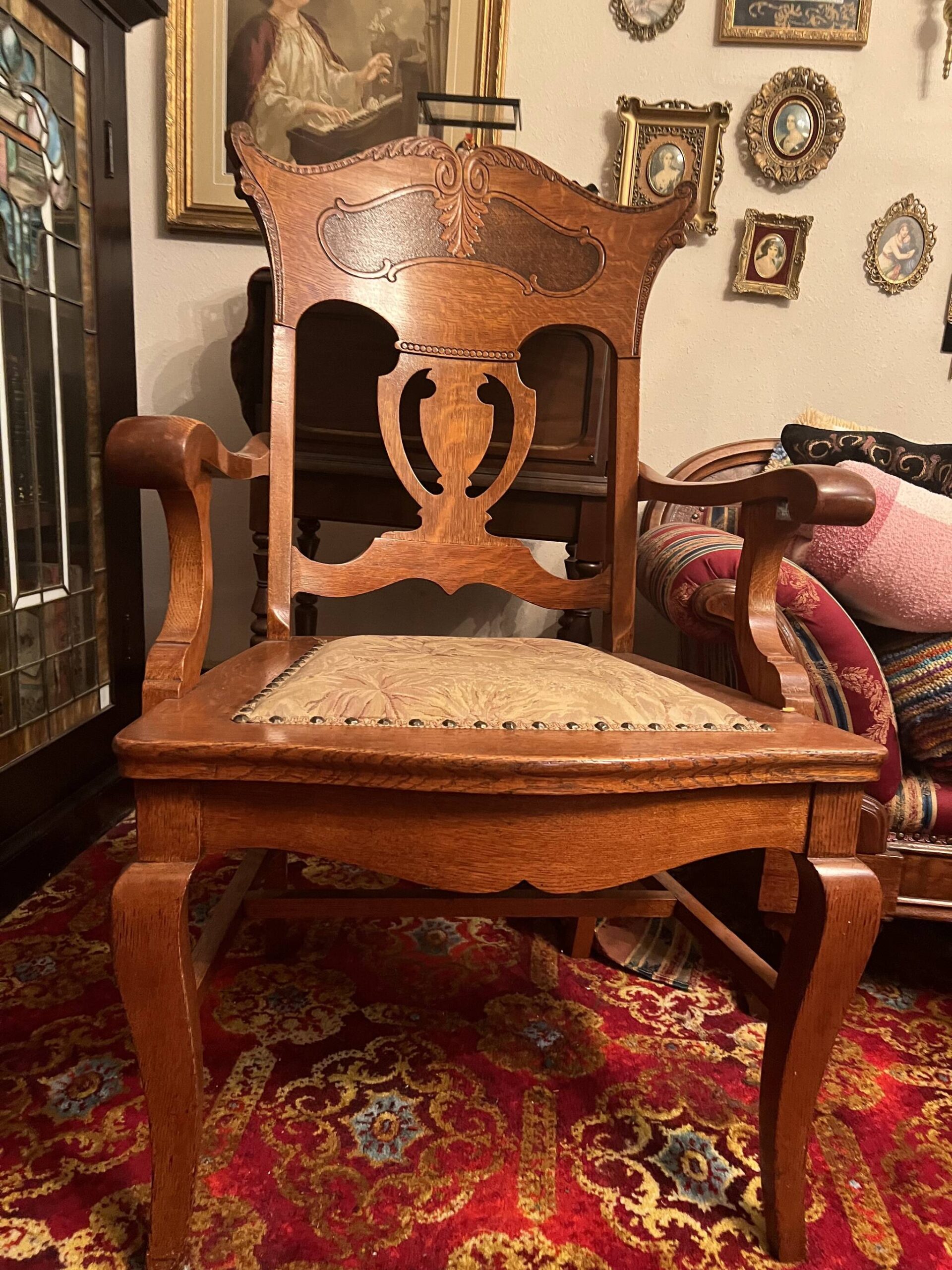John Anderson led the cutting department at the Simpson Door Factory for four decades, but other than the pair of resplendent fir doors that divide the living and dining rooms, his old home near Elma doesn’t necessarily fit the mill worker mold.
The house is filled with relics and knick-knacks reminiscent of European royalty. Plates, cups and bowls of fine china fill cabinets in the dining room, while clusters of miniature antique oval portraits hang on the walls of the living room. The carpet is made of an Irish wool that came in the same pattern Queen Victoria used in a Scottish castle.
Those aren’t the items that have piqued the interest of local historians. This house also holds clues about an old way of life in McCleary.
Anderson, a well-known East County resident who worked for decades at the Simpson door plant in McCleary, died on Sept. 6 at the age of 95.
Newspapers called Anderson a McCleary “legend,” one with a skill for telling enthusiastic stories about growing up in the town he adored.
He also had an ornate taste, a collector’s tendency, and ties to some of McCleary’s founding families.
“This house is full of really cool stuff,” Randy Beerbower said of Anderson’s old house. “John had a story for all of it.”
Beerbower, a McCleary Museum board member, along with museum President Linda Thompson and McCleary historian Charlie Fattig, visited the 19th century home last weekend with Mark Shelton, who was a friend, neighbor and the will executor of Anderson.
Anderson was a member of the McCleary Historical Society, and Fattig would often call him for informational tidbits and stories. Now, the historians wanted to find out if any items from Anderson’s collection would work as exhibits at the McCleary Museum.
Much of what the historians know about the items comes from Anderson’s stories, but for most of it they don’t know how or when, exactly, he got the stuff.
A few of the large furniture pieces in the house were once owned by Henry McCleary, the town’s namesake, the businessman who owned the McCleary door plant — and the entire town — until 1943.
A large, wooden dining room bureau features delicate carvings of spiraling wooden posts and detailed faces. It’s crammed with antique cups and teapots made of metal and glass. A long wooden table likely also came from the McCleary family, and the beeswax-polished chair in Anderson’s living room once sat in Henry McCleary’s office.
An oil painting of a mountain towering above choppy seas and dark grey skies hangs above Anderson’s kitchen doorway. The story goes that a McCleary drunk with an artistic talent completed the work in exchange for a night of drinking at the local tavern.
The pieces were probably inherited through the ties that Anderson’s mother and father had with the McCleary’s. She did housework for the family and was friends with another pioneer family in the McCleary area, the Townsends, who gifted her the furniture, Anderson told The Daily World in 1981.
Anderson had a soft spot for the man with a monopoly on the town. After Anderson’s father, the head steam donkey engineer for the McCleary logging company, was injured in a logging accident, McCleary “took real good care of his father. John always appreciated the fact McCleary did that,” Fattig said.
Henry McCleary sold the door plant and the town to the Simpson logging company in 1943, shortly after his workers unionized. He died a few months later.
“There are a lot of people who could tell you negative things about Henry McCleary,” Beerbower added. “John wasn’t one of them.”
A ‘roopty-doo’ place
Before he started his long career at the mill in his late teens, Anderson picked up two paper routes to begin earning money in the 1930s. His boyhood job gave him a view into the happenings of McCleary, put him in touch with the old-timers, and gave him stories he would later recount with the East County News upon his retirement in 1990.
“The paper boy knows everything that’s going on, especially if you deliver a morning and evening edition like I did,” Anderson told the paper.
As a boy he would even deliver newspapers to the brothels around McCleary. Anderson recalled the people there treating him kindly, and never swearing when he was around. One year on Anderson’s birthday they gifted the boy a tin full of change, what amounted to $30, according to Shelton.
“That’s a month’s worth of wages for a guy at the mill,” he said.
Beerbower said the McCleary Museum doesn’t have any exhibits or information highlighting the town’s brothel era, as Aberdeen was the Grays Harbor city more well known for prostitution in the early 20th century, but he wouldn’t be opposed to telling a more complete history of McCleary that includes the brothels.
Anderson always remembered the more family-friendly parts of McCleary’s history, too — a bowling alley, roller skating rink and lots of people. He was known for hosting a Christmas dinner each year for all of the mill workers in his department.
“I remember this town as a roopty-doo place,” Anderson told King 5’s Evening Magazine in 1998. “It was a lot of fun.”
Beerbower said he once had an idea to film a video of Anderson explaining stories about the items in his collection, which would be aired next to their exhibits at the McCleary Museum. That project never panned out, but the items remain, and so do some of Anderson’s stories.
“They were fun stories, and they were a time of life that just doesn’t exist anymore,” Beerbower said.
Contact reporter Clayton Franke at 406-552-3917 or clayton.franke@thedailyworld.com.


